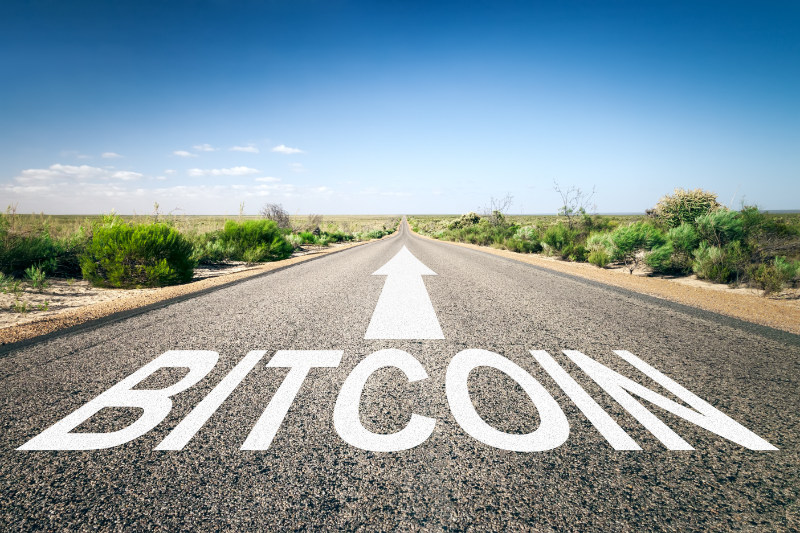
Today marks the 4th bitcoin halving, and BlockNewsAfrica is looking at the most vibrant cryptocurrency market in Africa, Nigeria, in our Journey So Far Series.
Nigeria – Background
Nigeria, the most populous country in Africa has seen some tremendous growth in the interest and adoption of Bitcoin over the years with the Q1 2020 Crypto market user trends report released by Coinmarketcap citing Nigeria as the 2nd country with the largest youth user growth.
The country is home to over 180 million people with 65% of them under the age of 25, a young consumer market. It has been termed a mobile-driven economy with over 120 million people using the internet, the majority of them are on smartphones, many thanks to the impact of affordable Chinese phones.
Payment Systems
In the early 2000s, there was a dire need for fast international transactions amongst online shoppers, bloggers, parents sending money abroad to their kids, individuals receiving money from abroad, and more.
The existing money transfer operators – Western Union, MoneyGram, were relatively too slow to process payments and had too many layers of security for average people to use. Several digital payment systems arose to provide solutions that were needed such as E-gold, the first digital currency entirely backed by gold and silver but was met with a series of unfortunate events that saw the account suspension of customers in high-risk countries including Nigeria, where many people lost their money.
Liberty reserve was another popular payment system that gathered millions of users but was ultimately shut down in May 2013 by US federal prosecutors for money laundering charges leaving thousands of Nigerian users hopeless. PayPal entered the Nigerian market in 2015, allowing Nigerians to send money but receiving money is still restricted.
Bitcoin’s Rise To Fame
Bitcoin has been slowly building a following in Nigeria by early tech enthusiasts and tech experts since its inception in 2009. The year that saw the rise of bitcoin was 2016/2017 during the peak of Ponzi schemes and HYIP (high yield investment programs) such as MMM founded by a Russian named Sergey Mavrodi, Get help worldwide, Cryptoshare and more.
These Ponzi schemes promised unrealistic returns and used Bitcoin as a payment option. The news spread like wildfire across the country with Google reporting Nigeria to be one of the countries with the highest search volume for Bitcoin.
However, the fame was short-lived when the Ponzi schemes shut down, leaving millions of people in debt. This painted a negative picture of Bitcoin, with people regarding it as a scam due to the lack of education.
Exchanges
P2P trading has been fiercely popular in Nigeria from the early days to date. The problems mostly associated with P2P trading are high levels of risk & high rate of trade above the general market levels. Due to this, some users in Nigeria hold the view that exchanges are a better option.
One of the oldest exchanges in Nigeria is Nairaex, which became the go-to exchange during the bull run in 2017. Nigeria is an enormous market with a youth-driven culture – the most receptive age group to digital innovations.
The large market has caught the interest of several foreign companies such as:
Binance, the largest cryptocurrency exchange in the world, enabled deposits for Nigerians through Flutterwave and activated Naira trading pairs. The exchange also has a Binance Nigeria team that onboards users and spreads awareness of the platform.
Paxful, one of the largest P2P trading platforms, reported Nigeria to be its largest market with a trading volume of over $5 million in the last 7 days. Paxful is the choice of exchange for trading of iTunes card, amazon card, steam card, and other cards. Certain reports have claimed Nigerians are using gift cards as a form of remittance by sending iTunes cards to their loved ones who sell it for Bitcoin on Paxful.
Binance labs-invested exchange, Yellowcard came into Nigeria in 2017 to create more access for purchasing Bitcoin through its crypto gift card vouchers that can be redeemed for Bitcoin on its platform.
Nigeria owned exchange, Bitfxt, established in 2017 to solve problems related to Bitcoin trading reportedly raised a staggering $15 million to expand its operations. The exchange has a mobile app to enhance the ease of trading.
Luno, formerly Bitx, one of the oldest functioning exchanges in Nigeria came into the market in 2015 and has been serving the needs of a large group of users. It recently added Ripple to its platform and activated instant withdrawals.
The large demand for Bitcoin has prompted the need to create more channels to buy and sell the popular cryptocurrency. Nigeria only got its first Bitcoin ATM in 2020. The ATM is expected to provide more access to trading Bitcoin and to further enhance the financial inclusion of both the unbanked and underbanked.
Other Cryptocurrencies
Several other cryptocurrency projects have taken interest in the blockchain/crypto loving country and have built communities of supporters e.g. Dash Nigeria, Decred Africa, Huobi Africa, EOS, etc. They all have the common interest of educating Nigerians about blockchain technology solving various problems in the country with their respective unique features.
Remittance And Store of Value
Remittance inflow from the diaspora into the country in 2018 was estimated at $28 billion, nearly equivalent to the crude oil sales for the same year. International money transfer services such as Western Union, MoneyGram charges ridiculous fees to process payments that take days to weeks to settle.
Western Union recently suspended Nigerians from receiving money from abroad, a huge blow for a country largely dependent on remittance. Citizens have been using bitcoin as an alternative option which is relatively faster and cheaper to use.
Binance- invested Ghanaian start-up Bitsika, has leveraged on the remittance problem to build a crypto-based remittance payment system for sending money across borders and is growing exponentially.
The Nigerian naira has lost over 60% of its value since 2014, due to inflation and devaluation. Bitcoin has become a popular choice for a store of value due to its deflationary attributes.
Bitcoin Halving

One of the major reasons Bitcoin has been a formidable challenger of fiat currencies is its supply reduction mechanism called ‘’halving’ that happens every 4 years or 210,000 blocks. It reduces the block rewards by half, 6.25 Bitcoins will be the next block reward after the upcoming halving, thereby reducing the supply of Bitcoin making it scarce – a true feature of money.
Bitcoin halving is happening today and the future that awaits it is truly glorious as it will make Bitcoin the scarcest asset on earth.
Communities
There are Nigeria communities working behind the scenes to push the adoption of Bitcoin and protect its reputation. The three most notable ones are SIBAN (Shareholders in Blockchain Association in Nigeria), a self-governed community, CampusBCAT (Campus Blockchain and Cryptocurrency Awareness tour) by Cryptotvplus and Blockchain Nigeria User Group.
Follow the growth of Bitcoin in Nigeria and the rest of Africa by joining our channel on Telegram. If you think we missed some important projects or details let us know in the comments section below.

The post Bitcoin In Nigeria: The Journey So Far appeared first on BlockNewsAfrica.

TheBitcoinNews.com – Bitcoin News source since June 2011 –
Virtual currency is not legal tender, is not backed by the government, and accounts and value balances are not subject to consumer protections. TheBitcoinNews.com holds several Cryptocurrencies, and this information does NOT constitute investment advice or an offer to invest.
Everything on this website can be seen as Advertisment and most comes from Press Releases, TheBitcoinNews.com is is not responsible for any of the content of or from external sites and feeds. Sponsored posts are always flagged as this, guest posts, guest articles and PRs are most time but NOT always flagged as this. Expert opinions and Price predictions are not supported by us and comes up from 3th part websites.
Advertise with us : Advertise
Our Social Networks: Facebook Instagram Pinterest Reddit Telegram Twitter Youtube











